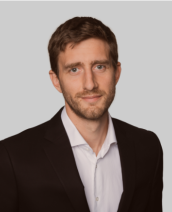Florent Nansé
Partner
Florent combines broad industry experience with deep expertise in strategy and innovation to deliver high-impact changes for industrial companies.

Areas of Focus
Education
Past Experience

Florent is a Partner based in the Boston office and a member of the global Automotive, and Industrial Goods & Services practices as well as a core leader of ADL’s Growth Accelerator offer.
Florent is primarily active in the manufacturing industries, where he focuses on topics involving result-driven growth strategy, go-to-market strategies, business building, technology & innovation and sustainability.
Florent is a committed leader of ADL Global ESG initiatives.
Florent holds an Engineering degree from the Ecole Nationale Supérieure d’Arts et Métiers and a master’s degree in Strategic Management from HEC Paris.


Unlocking sustainability value in private equity

IN TURBULENT TIMES, GO FOR THE TOP LINE

Driving profitability in US public EV charging

Sink or swim

The pandemic stress test

Corporate sustainability – Using your ecosystem to sustain the ecosystem

Win the automotive COVID-19 rebound

Innovation purpose

Logistics 4.0 – Facing digitalization- driven disruption

Automotive: Accelerating disruption through creative destruction

Florent is a Partner based in the Boston office and a member of the global Automotive, and Industrial Goods & Services practices as well as a core leader of ADL’s Growth Accelerator offer.
Florent is primarily active in the manufacturing industries, where he focuses on topics involving result-driven growth strategy, go-to-market strategies, business building, technology & innovation and sustainability.
Florent is a committed leader of ADL Global ESG initiatives.
Florent holds an Engineering degree from the Ecole Nationale Supérieure d’Arts et Métiers and a master’s degree in Strategic Management from HEC Paris.


Unlocking sustainability value in private equity

IN TURBULENT TIMES, GO FOR THE TOP LINE

Driving profitability in US public EV charging

Sink or swim

The pandemic stress test

Corporate sustainability – Using your ecosystem to sustain the ecosystem

Win the automotive COVID-19 rebound

Innovation purpose

Logistics 4.0 – Facing digitalization- driven disruption

Automotive: Accelerating disruption through creative destruction
More About Florent
- Ecole Nationale Supérieure d’Arts et Métiers (France)Engineering degree
- HEC Paris (France)Master of Strategic Management
- CMIConsultant
